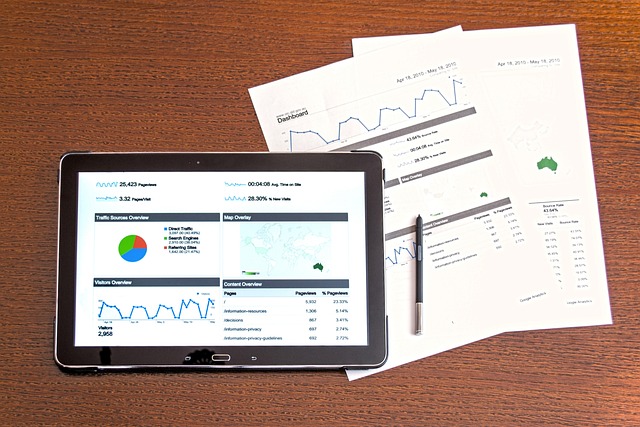The food industry is experiencing a major shift with AI subscription-based meal forecasting services, leveraging artificial intelligence to analyze consumer data and predict personalized meals. These solutions offer tailored experiences for customers and streamline operations for restaurants and delivery platforms. By optimizing inventory, reducing waste, and catering to diverse tastes, AI subscriptions facilitate convenient access to nutritious meals delivered directly to homes, fostering a more sustainable and personalized food landscape. A successful model includes powerful algorithms, user engagement strategies, and convenient features like mobile apps integrated with e-commerce platforms. With significant market growth driven by demand for personalized dietary solutions, these services are poised to revolutionize culinary consumption through intuitive interfaces, accessibility, and strategic partnerships.
“Revolutionize your food industry business with AI subscription-based meal forecasting services. This cutting-edge technology predicts demand, optimizes inventory, and enhances customer experience, marking a paradigm shift in meal planning. Our article explores how these services, built on robust AI business models, offer a competitive edge. We delve into the essential components of successful implementation, from data collection to algorithm training. Additionally, we analyze market potential and scaling strategies for these AI subscription services, providing insights for businesses aiming to thrive in the digital food landscape.”
- Understanding AI Subscription-Based Meal Forecasting: A Paradigm Shift in Food Industry
- Components of a Successful AI Business Model Training Service for Meal Forecasting
- Market Potential and Strategies for Scaling AI Subscription Services in Meal Planning
Understanding AI Subscription-Based Meal Forecasting: A Paradigm Shift in Food Industry

The food industry is experiencing a significant paradigm shift with the advent of AI subscription-based meal forecasting services. These cutting-edge solutions leverage artificial intelligence to analyze vast datasets, including consumer preferences, dietary trends, and seasonal ingredients, to predict and suggest personalized meal options. This not only enhances customer experience by offering tailored menus but also streamlines operations for restaurants and food delivery platforms.
By adopting AI subscription models, businesses can optimize inventory management, reduce food waste, and cater to diverse tastes more effectively. Customers, in turn, benefit from convenient access to nutritious and delicious meals delivered straight to their doorsteps. This innovative approach promises to revolutionize the way we think about and consume food, fostering a more sustainable and personalized culinary landscape.
Components of a Successful AI Business Model Training Service for Meal Forecasting

A successful AI business model for meal forecasting must incorporate several key components. Firstly, a robust and scalable AI algorithm is essential to accurately predict meal preferences based on historical data, dietary trends, and user feedback. These algorithms should leverage machine learning techniques to continuously improve their performance over time. Secondly, a subscription-based pricing model offers a sustainable revenue stream while encouraging consistent user engagement and data collection. Subscribers benefit from personalized meal recommendations tailored to their tastes and needs, fostering a loyal customer base.
Additionally, user-friendly interfaces and mobile applications are vital for an engaging AI meal forecasting service. Easy navigation, intuitive interaction, and seamless data syncing across devices encourage regular usage and data input. Integration with e-commerce platforms allows for direct order placement, enhancing the overall convenience for users. Regular updates and expansions of the AI model’s capabilities, such as incorporating new food categories or cultural cuisines, keep the service dynamic and appealing to a diverse range of subscribers.
Market Potential and Strategies for Scaling AI Subscription Services in Meal Planning

The market for AI-driven services in meal planning and forecasting holds immense potential, especially with the growing demand for personalized dietary solutions. By offering subscription-based models, businesses can tap into a steady stream of revenue while catering to diverse consumer needs. This strategy allows for continuous data collection, enabling the improvement and refinement of AI algorithms over time.
To scale successfully, companies should focus on developing intuitive user interfaces, ensuring accessibility across various devices. Additionally, partnerships with nutritionists and dieticians can enhance credibility and attract health-conscious consumers. Marketing efforts can highlight the convenience, time-saving aspects, and potential health benefits of AI subscription-based meal forecasting services, creating a compelling proposition for target audiences.
AI subscription-based meal forecasting is not just a trend; it’s a revolution in the food industry, offering precise predictions and personalized experiences. By leveraging robust AI business model training services, companies can unlock massive market potential. With the right components in place, from data collection to scalable algorithms, these services enable businesses to cater to individual preferences at an unprecedented level. As the demand for efficient meal planning continues to grow, scaling AI subscription services becomes crucial, opening doors to a future where AI-driven meals are the norm rather than the exception.
